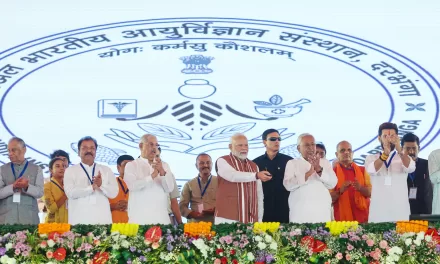In a groundbreaking study led by the Postgraduate Institute of Medical Education and Research (PGIMER), Chandigarh, researchers have unearthed inherited iron metabolism defects among anaemic patients in India, shedding light on a previously underrecognized health challenge. The findings underscore the critical need for proactive screening and heightened awareness of rare diseases within the population.
Anaemia, often associated with iron deficiency, ranks among the most prevalent global health issues, affecting millions worldwide. However, in India, where the condition is endemic, the diagnosis and treatment protocols face significant challenges due to insufficient awareness and systematic screening deficiencies, according to the study published in The Journal of Molecular Diagnostics.
Lead researcher Amita Trehan emphasized the study’s importance in alleviating the burden of rare inherited defects in India. “Our research aims to identify at-risk populations more effectively, devise targeted screening strategies, and explore innovative therapeutic options, including timely stem cell transplants,” Trehan stated.
The study focused on nearly 300 anaemia cases between 2019 and 2022, filtering out patients with inflammatory conditions or chronic bleeding. Of these cases, 41 exhibited suspected iron metabolism defects upon further analysis, highlighting a pressing need for comprehensive screening protocols.
“Clinicians often face challenges in diagnosing anaemia, particularly when standard treatments yield suboptimal results,” explained Trehan, alongside co-authors Prateek Bhatia and Pankaj Sharma from PGIMER’s Pediatric Haematology Oncology Unit. “Our findings revealed a significant prevalence of inherited iron defects, categorized as sideroblastic or nonsideroblastic, affecting a substantial portion of the cohort.”
Sideroblastic defects disrupt iron utilization during red blood cell production, while nonsideroblastic defects hinder intra-cellular iron processing, complicating traditional treatment approaches. Genomic analyses conducted as part of the study uncovered diverse mutations, including a novel recurrence in the SLC25A38 gene among unrelated patients from northern India, highlighting regional genetic diversity.
“We were surprised to identify these rare defects presenting in late childhood or adulthood, often undiagnosed until our systematic evaluation,” noted the researchers. This discovery underscores the importance of integrating advanced genomic testing into routine diagnostic practices to enhance precision medicine efforts tailored to India’s unique genetic landscape.
Moving forward, the study advocates for comprehensive national screening programs and increased clinician awareness to address the complexities of anaemia more effectively. By bridging the gap between research and clinical practice, the findings promise to reshape diagnostic paradigms and improve outcomes for patients grappling with inherited iron metabolism disorders across the Indian subcontinent.












